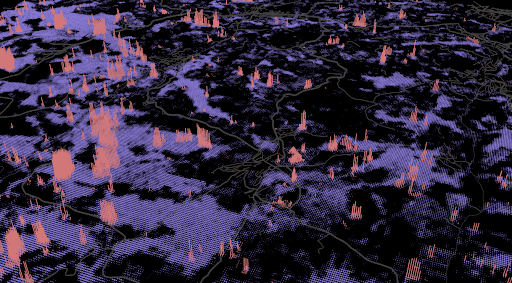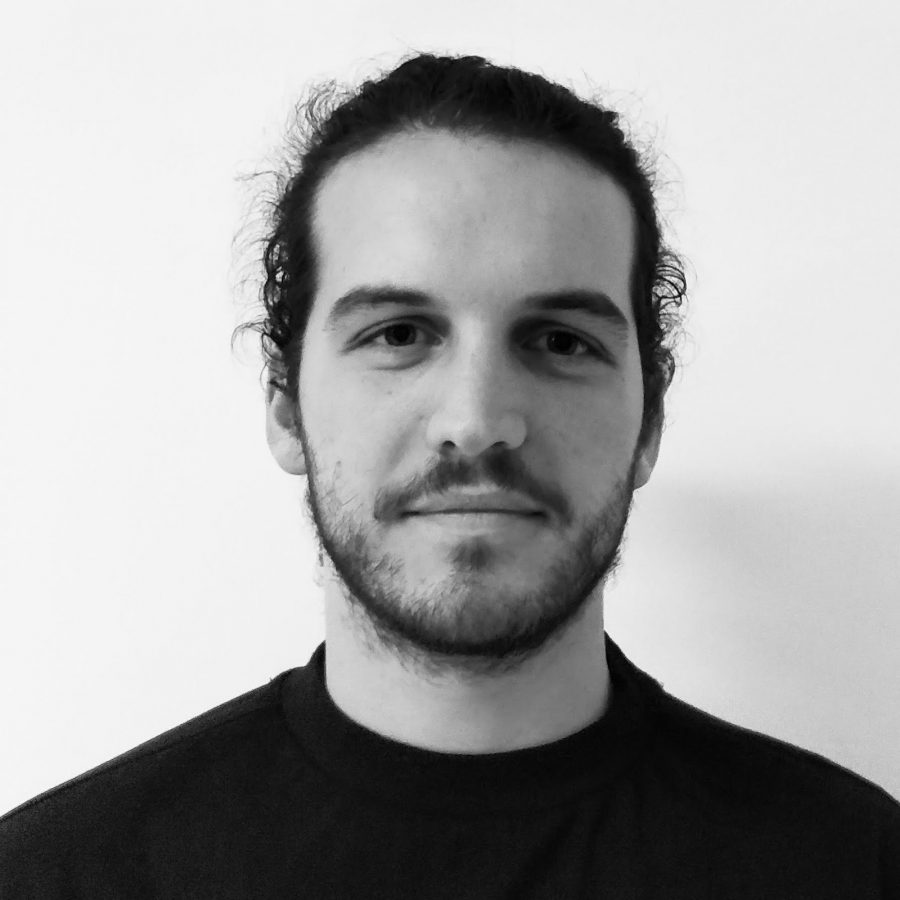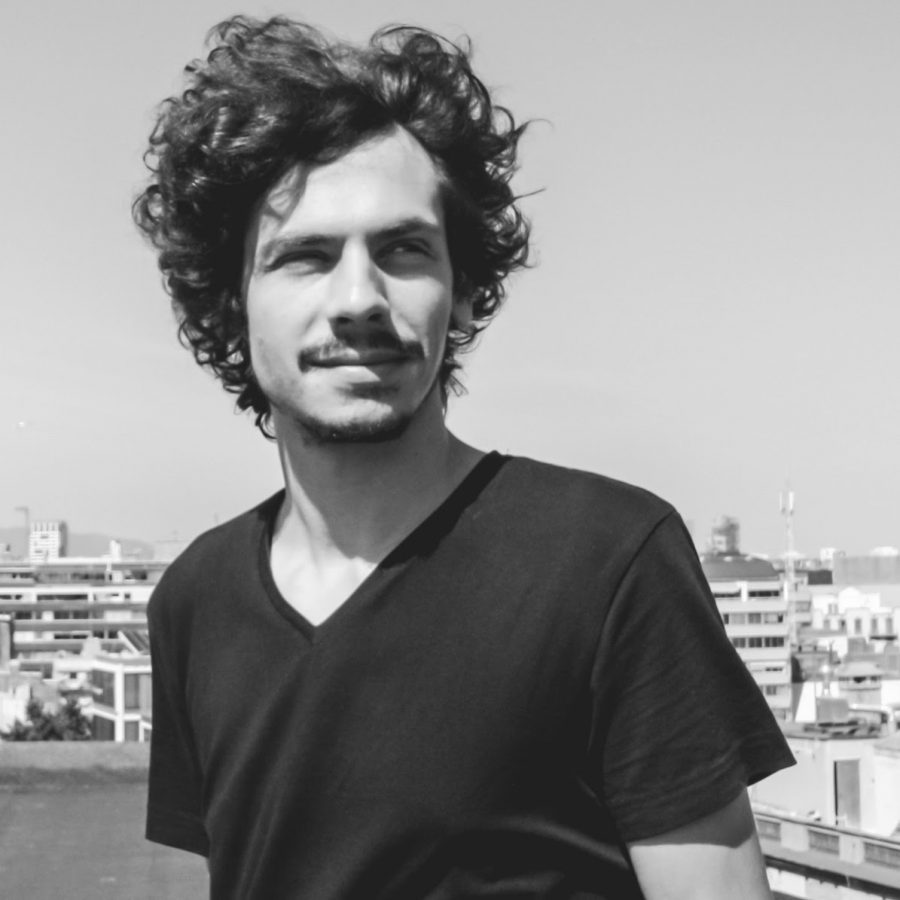IAAC – Institute for Advanced Architecture of Catalonia
Global Summer School Program 2022
Online Course: Urban Analytics
Duration: from the 18th until the 21st July 2022
GEO-DATA MINING AND CITY MAPPING

Ph credits: GSS21 Urban Analytics Faculty team: Iacopo Neri, Eugenio Bettucchi.
Syllabus
Over the last decades we have been experiencing a huge increment of stored data on the web, recent estimation says that the volume of the web is more than 1.2 billiard of terabytes.
With the possibility of accessing this vastness of data, how can we localise, extract and process data in order to generate tangible and meaningful information? Through services such as Google Earth Engine or Microsoft Planetary Computer, designers and creative thinkers can now unlock almost unlimited access to data that represents an unprecedented potential amount of information.
In particular, the practice of using new forms of data in combination with computational approaches can offer a clearer insight into spatial dynamics from urban environments, to territorial ecosystems. Focusing on geographical context, remote sensing, a data collection technique acquiring satellite images, paired with geospatial analysis, represents a valid operational approach to establish the criteria to study, observe and analyze habitats, producing maps to enhance advanced planning strategies.
This workshop will introduce students to spatial metrics, data processing, mapping strategies and advanced visualizations with the aim to better understand complex spatial dynamics. More specifically, the aim of the workshop is to strengthen students’ skills to work in systematic and consistent computational workflows, from raw data to insights. Starting from basic concepts, students will be guided towards data science applications, learn how to implement pipelines to access online-stored data, explore strategies to process and enrich the data, and, finally, produce informative cartographic representations.
Learning objectives
Students will be asked to select and analyse a territorial or urban phenomenon, based on their interest or intuition, and produce a series of cartographical and infographic representations to document their discoveries.
Students are challenged to exploit the computational strategies presented during the classes and apply them to a real-life scenario.
Group Submission:
- data gathering
- data processing
- data visualization
Previous Knowledge / Students background requirements
The workshop is open to all applicants with a bachelor degree related to the fields of Architecture, Design, Arts and Engineering willing to engage in the program. No previous extensive knowledge is required. The participants will receive lectures and classes to be introduced to the workshop’s topics, softwares and tools. Students will be introduced to basic and intermediate tasks of programming and visual programming. No previous knowledge of scripting is needed. Students need to use their laptop and a list of installable links will be sent a few days before the program starts.
Faculty

Iacopo Neri’s research lies at the intersection of architecture, computer science, and urban planning. Iacopo has been involved in academia since 2015, researching computational design and geospatial analysis. He has been involved in teaching activities at the University of Florence, The Polytechnic University of Milan, the Ecole des Ponts – ParisTech, and at IAAC – Institute for Advanced Architecture of Catalonia, where he is currently faculty of computational design and member of the AAG – Advanced Architectural Group’s Computational Design Research Team.
https://www.linkedin.com/in/iacopo-neri-25a375132/
https://neriiacopo.com/
Faculty

Eugenio Bettucchi is a civil engineer with a degree in Building Engineering & Architecture from Alma Mater Studiorum, University of Bologna (IT). He developed his thesis focusing on robotic material deposition based on real-time feedback. Actually he is senior designer and manager of the additive manufacturing unit at LaMaquina by Noumena, his interests and skills lie in computational design and digital fabrication. He is part of the IaaC teaching staff, for MRAC (Master in Robotic and Advanced Construction) MaCT and MAA. He has been involved in the IaaC 3DPA master and in the ROMI project (Robotics for Micro Farming) working with Fab Lab Barcelona contributing to the development of autonomous aerial solutions.
https://www.linkedin.com/in/eugenio-bettucchi-b59683b5/
Instagram: https://www.instagram.com/eugeniobettucchi/
WEEKLY SCHEDULE & TIMETABLES
Option 1 – Synchronous calendar (Barcelona time – GMT+2)
Recommend to European, African, Asian and Australian participants.
From Monday 18th July until Thursday 21st July 2022
Teaching activities will run from 10.00 to 14.00 GMT+2
– 8 hrs of live teaching
– 8 hrs of live mentoring and exercises review
– 1 hr of IAAC summer lecture
– Final GSS diploma certificate ceremony
Option 2 – Asynchronous calendar (America time – GMT-4)
Solution recommended to participants from all the time zones who are looking for a more flexible schedule.
From Monday 18th July until Friday 22nd July 2022
Live teaching activities will run from 11.00 am to 1.00 pm (GMT-4)
– 8 hrs of recorded teaching
– 8 hrs of live mentoring and exercises review
– 1 hr of IAAC summer lecture
– Final live GSS diploma certificate ceremony
Main tools
The installation of different python libraries will be guided during the course.
Students can install the following python idle:
- rhino 7 grasshopper for windows
- Gh_CPython / Hops
- google drive / colab
Throughout the course the students will be introduced to the use of external plugins in Grasshopper to manage Spatial data and create data visualizations. Students should install the following plugins:
Hardware
8 GB memory (RAM) or more
At least 600 MB space in the hard drive
Operational System
Windows 10, 8.1 or 7 SP2 (Grasshopper 3D is only currently available for the Windows operating system. For this reason, every student is required to have an installation of Windows).
Note: If you have an Apple computer, it is recommended that you install Windows on Boot Camp which will perform better than Parallels or VMWare.

